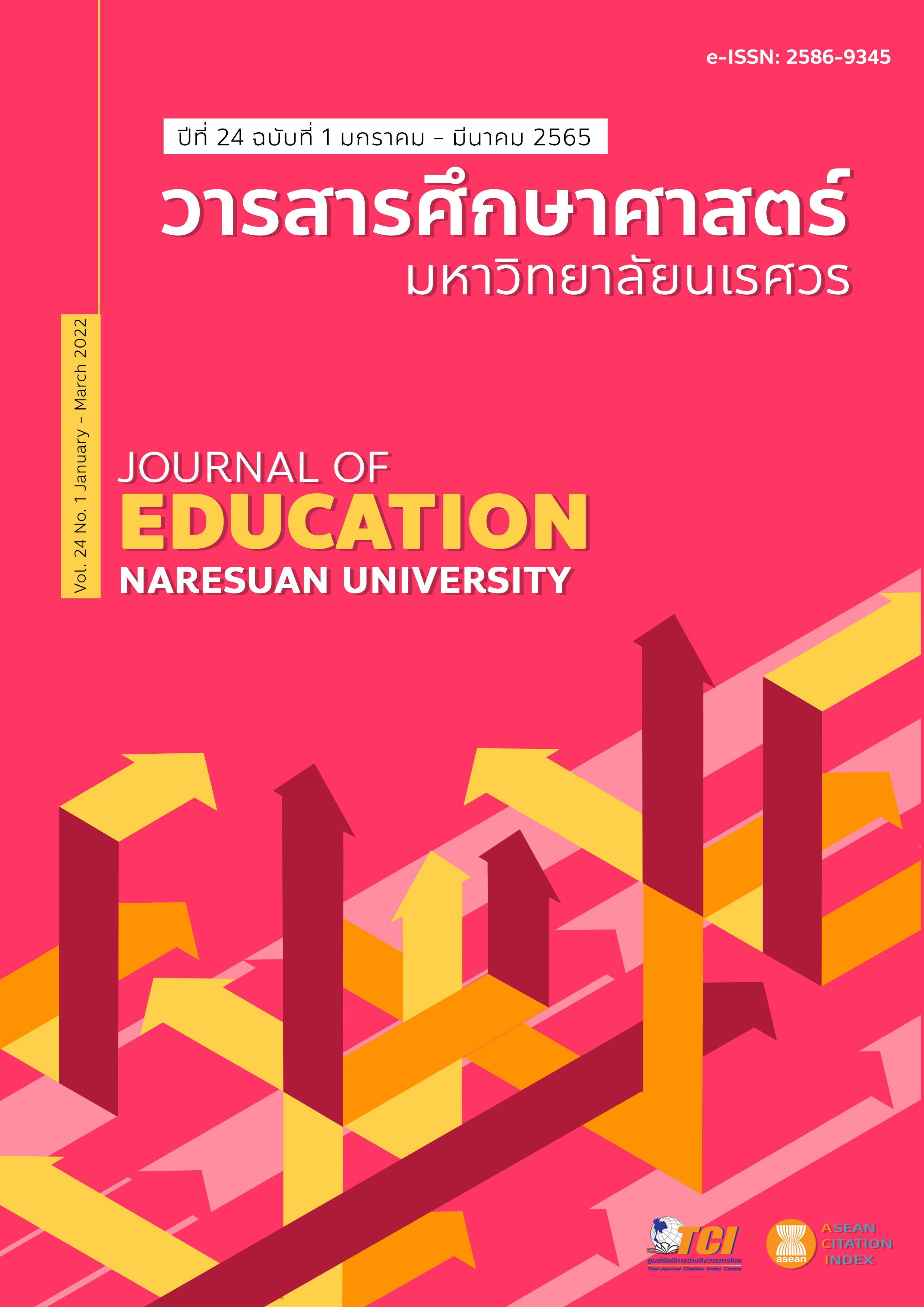DEVELOPMENT OF EARLY CHILDHOOD CHILDREN’S CREATIVITY AND INNOVATION SKILLS THROUGH CONSTRUCTIVISM EXPERIENCE ORGANIZING การพัฒนาทักษะสร้างสรรค์และนวัตกรรมของเด็กปฐมวัยโดยการจัดประสบการณ์การสร้างสรรค์ความรู้ด้วยตนเอง
Main Article Content
Abstract
The objectives of this research were 1) to design early childhood children’s creativity and innovation skills development through constructivism experience plans, and 2) to study early childhood children’s creativity and innovation skills development through constructivism experience plans. This research target group was 20 children who were study in kindergarten 2 at Ban Huaypao School under the Office of Thungkhaopuang Subdistrict Municipality, Chiangdao district, Chiang Mai province. The instruments used in this study consisted of 1) 3 Units with total of 20 early childhood children’s creativity and innovation skills development through constructivism experience plans, and 2) 2 of early childhood children’s creativity and innovation skills assessment forms. The assessment consisted of two sets, set 1 was creativity test, which the researcher used Torrance’s pictures A adapted by Aree Rungsinan, and set 2 was innovation skill performance assessment that the researcher created consisted of 5 activities. The data was analyzed by computing mean and percentage. Then compared pre and post creative and innovation skills scores with differentiate of 30% of early childhood children who learned through constructivism experience plans (MTPA model). The data was presented through table with description. The result found that:
1. There were three units with the total of 20 constructivism experience plans (MTPA), which developed children’s creative and innovation skills. The three units were Unit 1-Stone, Soil, and Sand consisted of six experience plans, Unit 2-Amazing Power comprised nine experience plans, and Unit 3-the Secret of Vetiver Grass included five experience plans. These experience plans were good quality and able to develop creative and innovation skills according to the purpose.
2. The result of studying early childhood children’s creative skills learning through MTPA model constructivist experience plans found pre assessment score was at 37.09% and post assessment score after learning with the plans was at 76.43% with the different of 39.34%, which was passed the set differentiate criterion of 30.00%. As for innovation skill assessment learning through MTPA model constructivist experience plans indicated that pre assessment score was at 42.30% and post assessment score after learning with the plans was at 80.90% with the different of 38.60%, which was passed the set differentiate criterion of 30.00%. The presented result showed that the creative and innovation skills, the target group were higher than before learning with the plans.
Article Details

This work is licensed under a Creative Commons Attribution-NonCommercial-NoDerivatives 4.0 International License.
The owner of the article does not copy or violate any of its copyright. If any copyright infringement occurs or prosecution, in any case, the Editorial Board is not involved in all the rights to the owner of the article to be performed.
References
Brahmawong, C. (1978). Innovation and educational technology and kindergarten teaching. Bangkok: Thaiwattana Panich. [in Thai]
Bureau of Academic Affairs and Educational Standards. (2003). Early childhood education curriculum B.E. 2546. Bangkok: Ministry of Education. [in Thai]
Kawwijit, M. (2010). Development of rational thinking ability of early childhood through experience management by constructivism. Chiang Mai: Faculty of Education Chiang Mai University. [in Thai]
Klomim, K., Namnak, C., Kaewurai, W., & Thumrongsothisakul w. (2014). A development of learning model based on constructivist theory of a scaffolding to enhance mathematic problem solving skill for lower for the mattayomsuksa 1. Journal of Education Naresuan University, 16(2), 129-133. [in Thai]
Moonngam, R. (2010). Development of science process skills for early childhood through constructivism experience organizing. Chiang Mai: Faculty of Education Chiang Mai University. [in Thai]
Panich, V. (2012). 21st century learning path for disciples. Bangkok: Sadsri-Saritwong Foundation. [in Thai]
Phanmanee, A. (1994). Creativity. Bangkok: Ton Aor. [in Thai]
Pornkul, C. (2001). CATS: A student-centered instructional model. Bangkok: Chulalongkorn University. [in Thai]
Sarattana, V. (2013). New paradigms in education perspectives on 21st century education. Bangkok: Thippayawisood Limited Partnership. [in Thai]
Tantipalajiva, K. (2008). Learning activities for preschool children. Bangkok: Mitsumphan Graphic. [in Thai]
Thamboworn, N. (2006). Development of cognitive processes in early childhood. Bangkok: Chulalongkorn University. [in Thai]
Tongthaworn, R. (2003). Early childhood constructivist teaching practices and philosophies of Thai teacher with four-to five-year-old students (Doctoral Dissertation). Pennsylvania: Indiana University of Pennsylvania.
Tongthawon, R. (2014). Model of constructivism experience for early childhood children. Chiang Mai: Faculty of Education Chiang Mai University. [in Thai]
Wolfe, J. M. (2001). Asymmetries in visual search: An introduction. Perception and Psychophysics, 63(3), 381-389.


